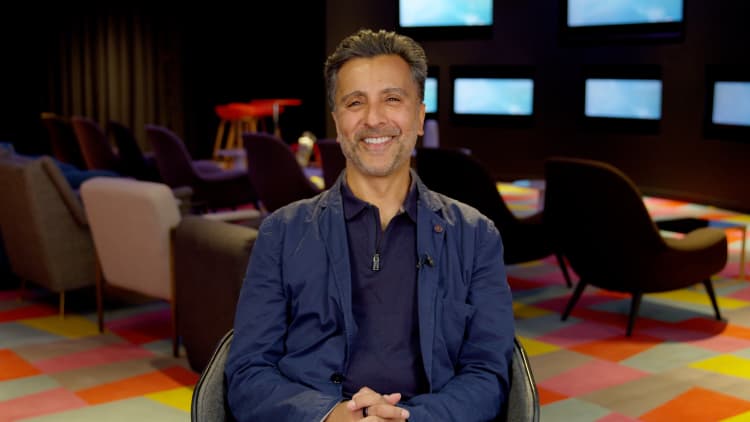Elon Musk, Bill Gates and the late Steve Jobs all have one personality trait in common — and it might be a clue to their ability to amass so much success.
That's according to author and historian Walter Isaacson who wrote Jobs' biography and is working on one about Musk. Isaacson says that Musk — like both Jobs and Gates — is unemotional when dealing with employees or colleagues, and uncompromising when it comes to fulfilling his grand vision for his businesses.
"That ability to not be as emotionally, empathetically engaged in order to see [their] vision through. It's something Steve Jobs had, it's something Bill Gates [has]," Isaacson said on CNBC's "Squawk Box" on Tuesday. "It's something a lot of these people have, because they're not looking for affection from the person sitting across from them. They're looking to get rockets to Mars."
In the past, some of Musk's employees at Tesla have described him as an extreme micromanager who isn't shy about expressing his displeasure when workers fall short of his lofty standards, or fail to meet his overly ambitious deadlines. He can be harsh, and not always easy to work for, but also often inspiring and funny, employees have said.
That sounds a lot like what Apple employees have said about Jobs. The Apple co-founder reportedly could be extremely blunt when sharing his opinions of employees' work, especially if he wasn't impressed with it. In 2019, former Apple executive Guy Kawasaki said that Jobs rarely wasted any time on "social niceties" at the office and "demanded excellence" from his employees.
"You had to prove yourself every day, or Jobs got rid of you," Kawasaki said.

Some of the complaints against Musk — the world's richest person, with a net worth of $274.3 billion, as of Wednesday afternoon — go beyond mere workplace rudeness. Musk and Tesla have faced criticism over allegedly poor working conditions in the company's factories, with Musk admitting that he asks a lot of his employees.
"If the expectation is, 'Hey, we can live and not work hard and not strain extremely to a great degree,' this is false. That is not true. In order for us to succeed, in order for us to live, we must work very hard," Musk told Bloomberg Businessweek in 2018.
Still, Isaacson said he sees a direct comparison between Musk and Jobs' social bluntness. "Musk is very similar [to Jobs] in being extraordinarily open," he said. "That transparency is part of his genius."
The comparisons extend out to Gates, too — even though the two billionaires don't always get along. Gates has admitted that in his early days of leading Microsoft, he "certainly wasn't a sweetheart." In a 2020 interview on the "Armchair Expert" podcast, Gates said both he and longtime friend Jobs were known for their intense competitive fire that translated into extremely high expectations for their employees and themselves.
For Musk, who runs both Tesla and SpaceX, being brusque and to the point with his employees might also be a natural byproduct of being crunched for time, due to his multiple leadership roles. Isaacson, who told CNBC that he is regularly in touch with Musk these days, said the CEO's personality allows him to filter out distractions — like the ongoing legal battle over his bid to buy Twitter, for example — when he needs to focus on a task at hand.
"He's able to sequentially focus in a way that I almost find like he's half-Vulcan or something," Isaacson said. "Because he doesn't wake up in the morning ... worrying about depositions, he's worrying about valves in the new engine for the Starship."
Isaacson later clarified that Musk definitely "cares about his reputation" — but that doesn't change his tendency to be blunt, or even harsh, with employees when it comes to executing a vision for his companies.
"If he's sitting in front of four or five people who have messed up getting the booster of Starship right, he says, 'If I'm starting to feel empathy [for them] instead of moving them out, then that's a misplaced empathy. My empathy has to be with the enterprise of getting to Mars, not with the person in front of me,'" Isaacson said.
Sign up now: Get smarter about your money and career with our weekly newsletter
Don't miss:
Elon Musk tweeted his best investing advice—and it sounds a lot like Warren Buffett's strategy


